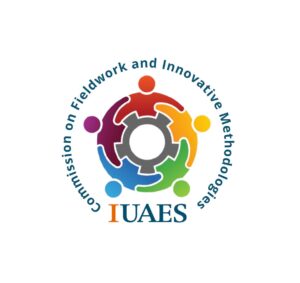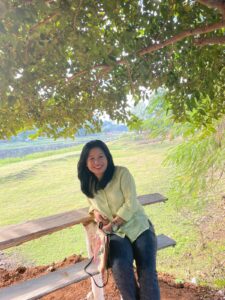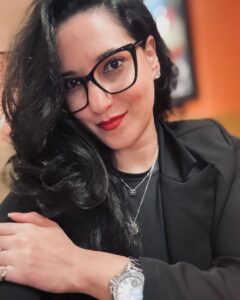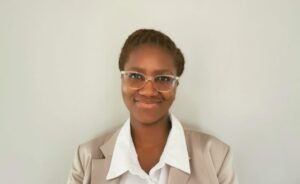
The IUAES Commission on Fieldwork and Innovative Methodologies was approved in February 2025. The emergent need of a new commission that could act as an interlocutor, encouraging dialogue between all the innovative methodologies that are used in the changing times, including participatory, visual, and digital ones, garnered the beginning of the commission. The commission’s objective is to explore the intersections of evolving methodologies, ethical challenges, and technological advancements in fieldwork, considering diverse contexts.
It seeks to understand how anthropologists maneuver the dynamics of fieldwork while remaining committed to the discipline’s core values. The Commission represents an essential step toward modernizing and expanding the discipline’s methodological horizons, focusing on interdisciplinary, multidisciplinary, and transdisciplinary dimensions. By addressing gaps in standardization, ethics, and training, the commission will provide IUAES members with innovative tools and perspectives necessary to thrive in a data-driven world.
Its interdisciplinary focus, commitment to cultural sensitivity, and dedication to inclusivity will ensure that anthropology remains both relevant and impactful in addressing the pressing challenges of the 21st century, characterized by rapid digital developments and ensuing ethical concerns. It is also important to highlight that Anthropology, as a discipline rooted in the tradition of “being there,” has been significantly influenced by changes and challenges, such as the COVID-19 pandemic and the rise of digital tools for data collection. These shifts not only redefine the tools and techniques used in ethnographic research but also provoke critical questions about the ethical, methodological, and epistemological foundations of the discipline.
The commission aligns with the broader goals of IUAES by promoting interdisciplinary dialogue and advancing methodological innovations in anthropology. As many commissions explore cutting-edge or niche methodologies relevant to their fields, they will be actively encouraged to interact and contribute to the Commission on Fieldwork and Innovative Methodologies.

Dr. Teresa L Khawzawl
Chair and Founder of the Commission
Teresa L Khawzawl is a Social-Cultural Anthropologist. Currently working as an Assistant Professor in the department of Anthropology, Cotton University, Guwahati, Assam India, she is engaged in teaching and research for the last 9 years.
Teresa holds a Ph.D (2017) in Social and Cultural Anthropology from the Department of Anthropology, North-Eastern Hill University (NEHU), Shillong. She completed Bachelor’s Degree in Anthropology affiliated to NEHU in 2007 from Women’s College, Shillong. She completed her M.A. from Department of Anthropology, NEHU in 2009. She was awarded UGC-JRF in 2009.
As a researcher, she has worked in Don Bosco Centre for Indigenous Cultures (DBCIC), Mawlai, Shillong, engaging in documenting and labelling artifacts and display boards. She has also contributed as Content Editor for DBCIC-Anthropology Today – An International Peer Reviewed NEIRA Journal. Her areas of interest include gender studies, development Anthropology, ethnography, visual Anthropology and Anthropology of Food.
At the WAU Conference 2024, she co-convened a panel on Traversing Changing Contours of Anthropological Fieldwork, Ethics and Principles. She is working on projects like An Analytical Study on Social and Community- Driven Preparedness, Challenges and Responses to Covid-19, funded by ICSSR, New Delhi, India; College Readiness and Students Success in Higher Education in India funded by CPRHE/NIEPA, New Delhi, India. Besides, she is also involved in ICSSR, New Delhi funded Collaborative project on Prevalence Estimation and Assessment of Various Risk Factors Influencing Alcohol use Behavior among University Students of Assam using Maching Learning Techniques.
Teresa is also a member of learned bodies like The Indian National Confederation and Academy of Anthropologists (INCAA), Member of The International Union of Anthropological and Ethnological Sciences (IUAES), Member of Indian Anthropological Society, Member of Indian Anthropological Association and United Indian Anthropology Forum (UIAF).

Milena Geisa dos Santos Martins
Co-Chair and Co-Founder of the Commission
Milena Geisa dos Santos Martins is a PhD candidate from Federal Rural University of Rio de Janeiro, and a research fellow at CAPES (Coordination for the Improvement of Higher Education Personnel). She is an anthropologist specializing in digital anthropology, with a particular focus on health technologies, human-technology interactions, and innovative research methodologies.
She is also Co-Chair and the Co-founder of the IUAES Commission on Fieldwork and Innovative Methodologies and Social Media Manager for the IUAES Commission on the Anthropology of Pandemics. Beyond the IUAES Digital Anthropology Commission, she is also a member of the Royal Anthropological Institute and of the European Association of Social Anthropologists.
She has extensive experience organizing and coordinating academic panels at international conferences, including IUAES World Congress 2023, the EASA Conference 2024, the WAU Congress 2024 and the WAU Congress 2025.
Her present research explores the intersections between mental health and digital technologies, critically analyzing how self-management health applications shape users’ experiences and perceptions of well-being. She is currently developing a theoretical study on mental health apps and neoliberalism, incorporating ethnographic data to examine user experiences, app development processes, and the broader socio-economic logic behind these platforms.
Beyond digital health, she investigates evangelical feminism and virtual activism, analyzing how religious and feminist discourses intersect in online spaces. Her work explores how digital platforms are used to challenge traditional gender roles, foster community, and negotiate tensions between faith and feminist ideals. Regarding this research, she has published articles indexed by Web of Science, and a book chapter will also soon be published by Taylor-Francis.
Committed to fostering interdisciplinary dialogues, she actively engages in discussions on methodological innovations in anthropology and the future of research in an increasingly technologized world.

Maxine Nyoni
Social Media Intern of the Commission
Maxine Nyoni completed her postgraduate studies in Anthropology, at the University of the Witwatersrand, Johannesburg, in South Africa. She currently serves as a social media intern for the Methodology and Fieldwork Commission. She is passionate about capturing diversity and experiences in academic communities, and this commission has a fostering environment for personal and professional growth.
Her research interests include environmental Anthropology, storytelling, indigenous and sustainability.


